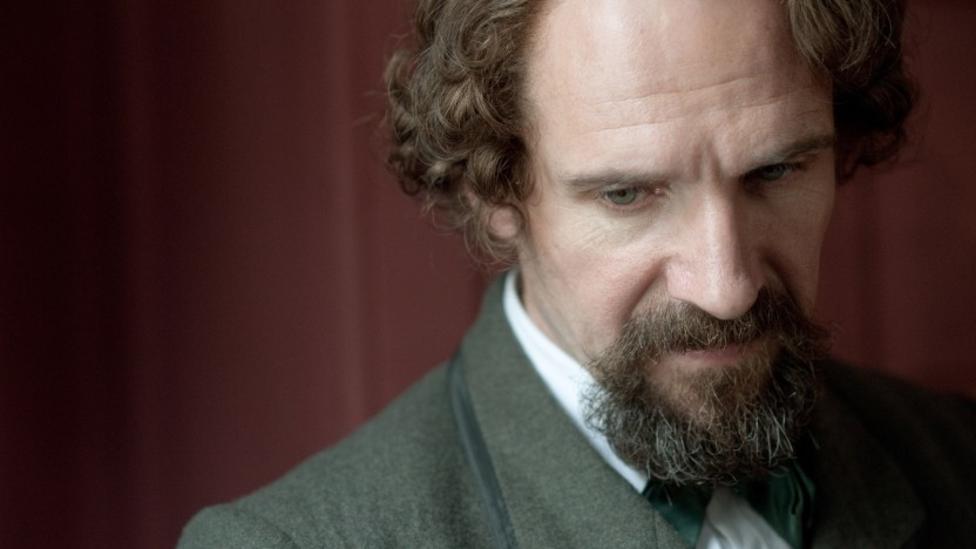Title: The Invisible Woman
Director: Ralph Fiennes
Starring: Ralph Fiennes, Felicity Jones, Kristin Scott Thomas, Tom Hollander, Joanna Scanlan, Perdita Weeks, Amanda Hale, Tom Burke, John Kavangh, Michael Marcus.
Claire Tomalin’s book ‘The Invisible Woman: The Story of Nelly Ternan and Charles Dickens’ lands on the silver screen, through the direction of the eclectic Ralph Fiennes.
A woman (Felicity Jones) strides across the deserted beach in 1885’s Margate, England. She is Ellen, called Nelly, a married mother and school teacher, haunted by the memories of her youth. As an eighteen year old – when she was an actress who performed and toured with her mother and two sisters – she encountered Charles Dickens (Ralph Fiennes) at the height of his fame. During that time, the theatre is a vital arena for the English writer and social critic, but his marriage is faltering with Catherine (Joanna Scanlan) who bore his ten children. Nelly becomes Charles Dickens’ muse and passionate love, but her role in his life will confine her to ‘invisibility.’
The story explores the female condition, unveiling the spirit and gentleness of the woman who was so much more than the mere secret mistress of the most famous British author of the nineteenth century. Dickens had become disillusioned with his wife, who lacked his energy and intellect. Ternan, on the contrary, was clever, witty, charming, forceful of character, undomesticated and interested in literature, the theatre, and politics. Dickens referred to her as his “magic circle of one,” and some biographers have found that she actually may have inspired some of his characters. Besides the physical description of Lucie Manette, as fair haired and ethereally sweet, in ‘A Tale of Two Cities,’ there is a little of Nelly in many of his female characters, like in Estella of ‘Great Expectations’ or Bella in ‘Our Mutual Friend.’
Nelly was the shadowy figure in Dickens’s life, the woman who shared the last thirteen years before his early death. Ralph Fiennes has majestically explored a story that some biographers tried to obliterate from history, with delicate intensity. This is his second film as a director, after Shakespeare’s adaptation of ‘Coriolanus.’ His way of shooting is out of the ordinary for the alternation of extremely wide panoramic shots, with artistic reflections of the actors’ faces in glass windows; and being an actor he has managed to imbibe the entire cast in those “Hard Times.”
The incredibly raw performance of the rising British star, Felicity Jones, seems to be the only one who could do justice to Nelly Ternan’s memory; just as the rest of the roles have been perfectly matched: Kristen Scott Thomas (Mrs Ternan), Tom Hollander (Wilkie Collins), Joanna Scanlan (Catherine Dickens), Perdita Weeks (Maria Ternan), Amanda Hale (Fanny Ternan), Tom Burke (George Wharton), John Kavangh (Reverend Benham), Michael Marcus (Charley Dickens) and last but not least Ralph Fiennes who is the perfect reincarnation of the prodigious Charles Dickens.
It is a custom to revive and brush up ‘A Christmas Carol’ during Yuletide, but ‘The Invisible Woman’ in cinemas will be just as worthy for the Dickensian holiday spirit and it will bring back the angelic luminescence of the inspirer of some of the best creations of the greatest novelist of the Victorian period.
Technical: A
Acting: A
Story: A
Overall: A
Written by: Chiara Spagnoli Gabardi

